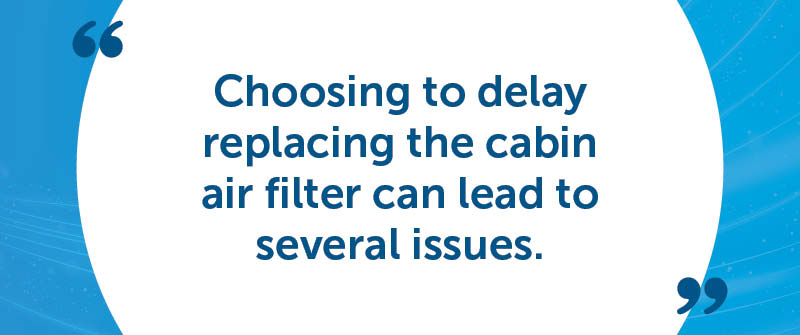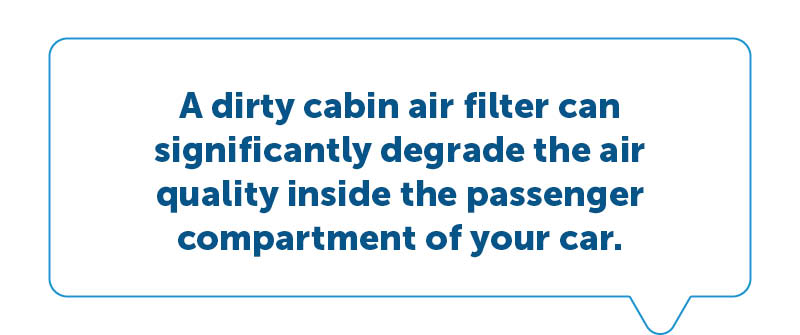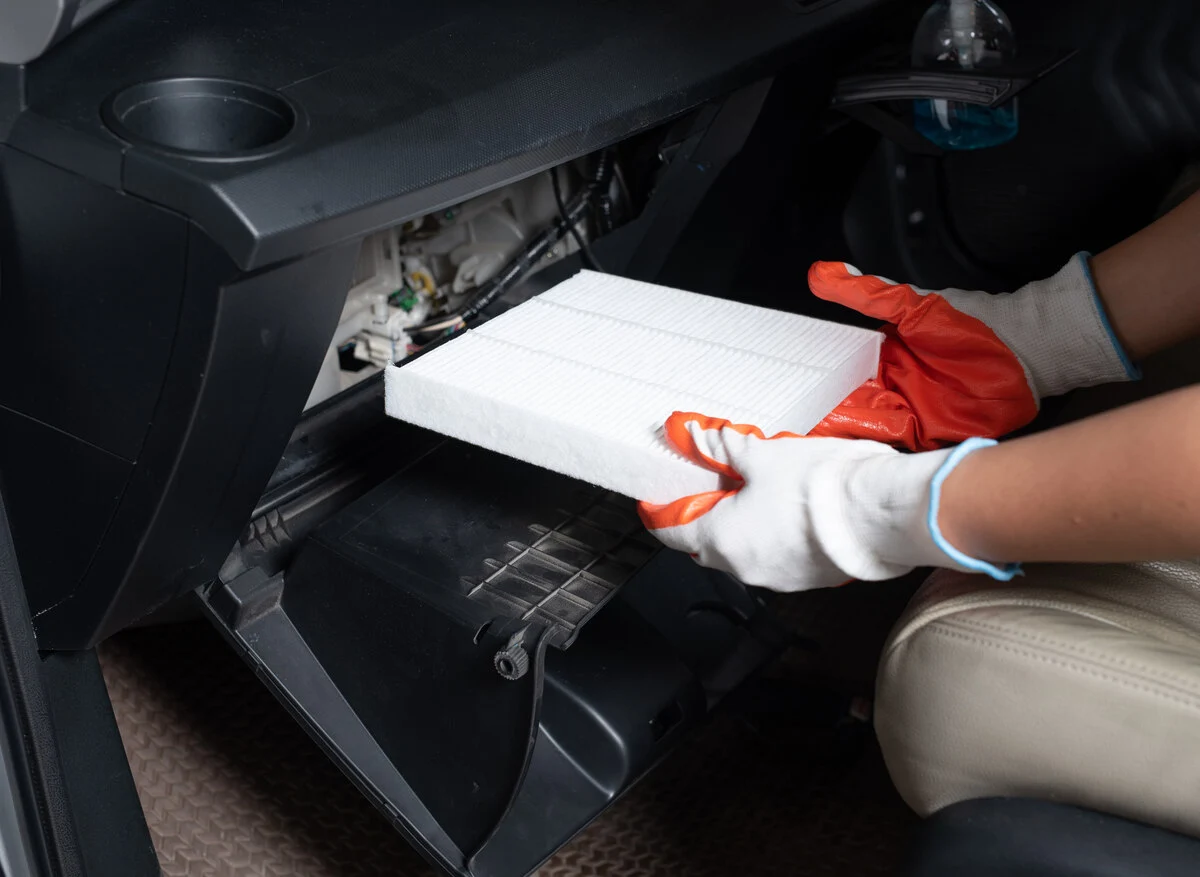What Happens If I Never Change My Cabin Filter?
Neglecting to change your cabin air filter can have several detrimental effects on both your comfort and your car’s performance. One of the primary impacts of not replacing the filter is the deterioration of air quality inside your vehicle. A dirty cabin air filter fails to effectively filter out dust, pollen, and other allergens, ultimately leading to the circulation of contaminated air within the cabin. This can be especially troubling for individuals with respiratory conditions or allergies, making even short drives uncomfortable and unhealthy.
Furthermore, a clogged cabin air filter can significantly affect your car’s air conditioning system. As the filter becomes loaded with debris, it restricts airflow, causing the AC system to work harder to maintain desired temperatures. This inefficiency not only results in reduced heating or cooling abilities but also puts additional strain on the blower motor. The extra effort required to push air through a dirty air filter could lead to premature wear and tear, potentially causing expensive repairs or replacements down the line.
Ignoring the cabin filter maintenance could also lead to more immediate inconveniences, such as foul odors permeating the vehicle when mildew and bacteria accumulate in the filter. Overall, neglecting this simple maintenance task can snowball into larger issues, affecting both your comfort and your vehicle’s longevity.
How Long Can You Go Without Changing the Cabin Air Filter?
Many homeowners may wonder how long they can go without changing the cabin air filter in their vehicles. The answer isn’t one-size-fits-all and largely depends on various factors such as driving conditions, the specific vehicle, and the type of cabin air filter used.
Recommended Intervals for Cabin Filter Replacement
Vehicle manufacturers typically recommend replacing the cabin air filter every 15,000 to 30,000 miles. Driving on dirt roads often necessitates more frequent replacements of a new cabin air filter due to increased dust and debris. If you’re someone who drives frequently in urban areas with high pollution levels or dusty environments, consider more frequent replacements to ensure optimal air quality inside your car. By contrast, less frequent drivers might find these intervals sufficient.
Factors Affecting the Lifespan of Cabin Filters
The lifespan of a cabin air filter is affected by factors such as driving environment, seasonal changes, and individual vehicle maintenance practices. Rodent droppings can also affect the lifespan of the cabin air filter by introducing harmful debris into the HVAC system. For instance, driving through construction zones or rural areas where dust and pollen are prevalent might necessitate more regular filter changes. Additionally, allergy sufferers might want to replace filters more often during peak allergy seasons to maintain comfort.
Risks of Extending the Replacement Period
Choosing to delay replacing the cabin air filter can lead to several issues. Over time, a filter can become clogged with contaminants, hindering its effectiveness. This results in poorer air quality inside the vehicle, potentially aggravating allergies and respiratory conditions. Additionally, a clogged filter can put extra stress on the vehicle’s HVAC system, reduced air flow, and poor fuel consumption, potentially leading to inefficiencies or costly repairs.

What Are the Symptoms of a Bad Cabin Air Filter?
Understanding the dirty cabin air filter symptoms can go a long way in maintaining a comfortable and healthy environment inside your vehicle. A bad cabin air filter can negatively impact not just your vehicle’s internal air quality but also your overall driving experience.
Signs of Reduced Airflow
One of the most common signs of a dirty cabin air filter is reduced airflow through your vehicle’s ventilation system. If you find that your car’s heating or cooling functions aren’t as effective as they once were, a clogged filter could be the culprit. This issue occurs because debris and pollutants clog the filter as air passes through it, restricting the airflow. Reduced airflow through air vents can also be a sign of a dirty cabin air filter. Checking to see if the air filter is overdue for a replacement might resolve these airflow issues.
Unpleasant Odors Inside the Vehicle
Another key symptom of a failing cabin air filter is noticing unpleasant odors when you start your vehicle or turn on the air conditioning system. These odors are typically caused by bacteria, mold, and mildew that can accumulate on a filter that hasn’t been changed for a while. Overlooking this odor might not only make your drives less pleasant but could also affect your health over time.
Increased Allergy Symptoms for Passengers
If passengers in your car are experiencing increased allergy symptoms, it could be a sign that your cabin air filter requires attention. A clean cabin air filter captures dust, pollen, and other allergens from the outside air, reducing their impact on passengers prone to allergy attacks. If you or your passengers are noticing frequent sneezing or itchy eyes, it might be time to check your filter.
Do Cabin Filters Really Need to Be Changed?
Cabin air filters are often overlooked in the regular maintenance of automobiles, but their role in maintaining a healthy cabin environment is critical, but are cabin air filters necessary? While some might believe that changing these filters is not necessary, the benefits of changing the cabin air filter in the car can have substantial impacts on both the vehicle’s performance and the driver’s health.
Cabin Filter vs. Engine Air Filter
It’s important to distinguish between the cabin filter and the engine air filter because they serve different purposes. The vehicle’s cabin air filter is responsible for ensuring the air circulating inside the vehicle is free from pollutants like dust, pollen, and smog, contributing to a clean and fresh cabin environment. On the other hand, the engine air filter prevents dirt and debris from entering the engine, ensuring optimal performance and longevity of the vehicle. Therefore, both filters are vital and necessitate regular replacements, though they serve different functions.
Importance of Maintaining Air Quality in the Car
A dirty cabin air filter can significantly degrade the air quality inside the passenger compartment of your car. Not changing it enables pollutants to accumulate, which can lead to increased irritation among passengers, particularly those with allergies or respiratory conditions. Most vehicles use a cabin air filter to help reduce in-vehicle TRAP (Traffic-related air pollution) exposures, such as urban air pollution. Regular replacement of the cabin air filter should be seen as an essential step in maintaining a healthy and comfortable driving environment.

Long-term Benefits of Regular Filter Changes
The long-term benefits of changing the cabin air filter regularly extend beyond just improved air quality. It can help maintain the HVAC system’s efficiency and protect the heating and cooling system from damage, preventing costly repairs due to accumulated dirt and debris blocking air passages. Plus, by ensuring cleaner air, you’ll reduce potential health risks for you and your passengers, making each journey a more pleasant experience.
Don’t overlook the importance of a cabin filter – they are essential in keeping your car’s air quality at its best. Give your car the attention it deserves by ensuring regular filter changes. At Discount Filters, we provide top-notch cabin air filters that meet diverse automotive needs. Enhance your car’s interior environment, breathe easy, and keep pollutants at bay with our reliable filters.

